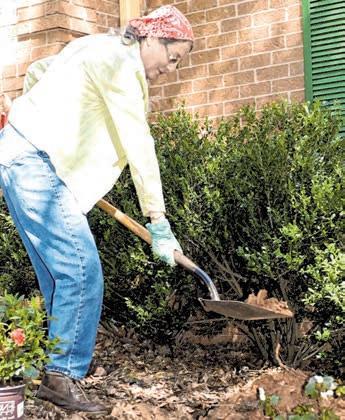
2 minute read
Improving Your Property?
National Safe Digging Month has begun, and PSEG Long Island takes the occasion to remind customers, contractors and excavators to always call 811 before digging to ensure underground pipelines, conduits, wires and cables are properly marked out.
Every digging project, even a small project like planting a tree or building a deck, requires a call to 811. It’s the law. The call is free and the mark-out service is free. The call must be made whether the job is being performed by a professional or a do-it-yourselfer. Striking an underground electrical line can cause serious injury and outages, and result in repair costs and fines.
Advertisement
“Spring’s warmer temperatures make it a perfect time for starting improvements to our homes and businesses. Calling 811 ahead of time helps protect underground utility lines and, more importantly, the safety of anyone digging,” said Michael Sullivan, PSEG Long Island’s vice president of transmission and distribution operations. “We are glad to see that our customers are getting the message. Last year there were more than 240,000 mark-out requests in our service area, and so far this year, there have been more than 48,000 requests to 811.”
According to Common Ground Alliance, a member-driven association of nearly 1,800 individuals and 250 member companies in every facet of the underground utility industry, 40 percent of active diggers in North America do not call 811 because they think their project is too shallow to require it. All digging projects require a call to 811.
A free call to 811 in the service area automatically connects the caller to the local New York one-call center, which collects information about digging projects. The one-call center then provides the information to the utility companies, which send representatives to mark the locations of nearby underground lines with flags, paint or both. Once lines have been properly marked and confirmation from all of the utility owners is received, projects may proceed as long as caution is used around the marked areas.
Here’s important information to consider:
• Calling 811 before digging reduces the chances of damaging an underground line to less than one percent.
• Underground gas and electric lines are everywhere, even on private properties. These facilities can be easily damaged if dug into, with the potential to cause serious injuries. Digging into these lines can also disrupt vital utility services, resulting in costly delays, expensive repairs and environmental or property damage.
• Whether the job is a major home improvement project or something as simple as a fence or mailbox post, a call to 811 must be placed beforehand to determine where it’s safe to dig.

• Call 811 at least two business days before the commencement of each job to have underground pipes, wires and equipment located. Each facility owner must respond by providing the excavator with a positive confirmation indicating that marks are in place where utility lines are buried or that there are no existing facilities in the area of the proposed work. This service is free of charge.
• Be sure to wait until all of the utilities have responded. Don’t dig until lines have been marked or you have received confirmation that the area is clear of facilities.
• Property owners must maintain and respect the marks. Always hand dig within two feet of marked lines to find the existing facilities before using mechanized equipment.
• If gas lines are damaged or there is a gas smell when excavating, call 911 immediately from a safe area.
Calling before you dig is more than a good idea—it’s the law. Additional information, including a booklet on safe excavating practices and the protection of underground facilities, can be found on the PSEG Long Island website (www.psegliny.com).










